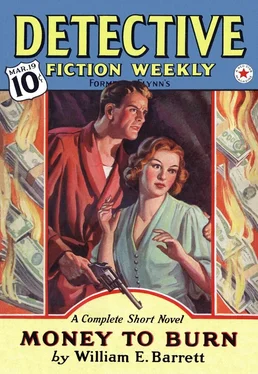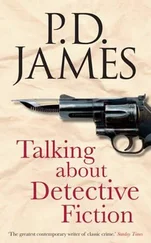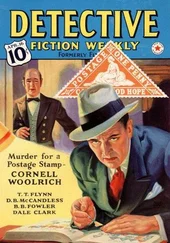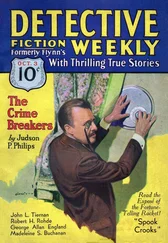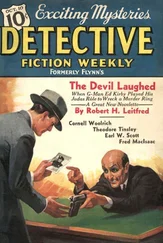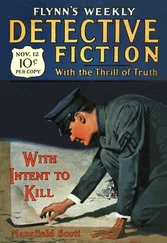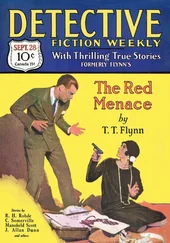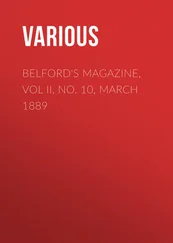“ ‘But—’ ”
“Hatch, you’re a terrific strain on my nerves,” Kerrigan said.
“ ‘But, because I cannot come forward openly, I found it necessary to make use of some means of communication which would not reveal my whereabouts or the name under which I am now living. I remembered your loft, Mr. Westcott, and recalled that you frequently ship pigeons off by express, as I used to do. I telephoned your home, spoke to Mrs. Westcott as another pigeon fancier, and learned that you were about to send a crate of pigeons to Boston. Seizing the opportunity, I confiscated your crate of birds while Mrs. Westcott was taking them in her car to the express office.
“ ‘I have already released all but two of the birds. One of the two remaining pigeons will carry this message to you. The last bird may carry an even more important communication — the name of the murderer.
“ ‘But—’ ”
“Hatch you’re killing me,” Kerrigan said.
“ ‘But,’ ” Hatch continued, “ ‘I hesitate to assume the responsibility of condemning a human being, even a murderer, to death. I write this in the hope that he will realize he cannot escape justice. I take this means of warning him, of giving him an opportunity to confess.
“ ‘But if he does not confess tomorrow, I will hesitate no longer. I will write another message, to be delivered by pigeon in this same way, and name him.’ ”
“Damn me!” Kerrigan said.
“ ‘Please turn this letter over to the Commissioner of Police as soon as convenient, and arrange matters so that he will be present when the final message arrives. Sincerely yours, Timothy Ouinn.’ ”
Kerrigan moaned, “Hatch, that’s dynamite. What if it dawns on the police that Quinn is Westcott?”
“Can you think of any better way of squeezing out of this?” Hatch challenged.
Kerrigan said vehemently, “It’s nothing but a bluff. It won’t work. Nobody’ll confess. Tomorrow will come and go and the murderer will keep his mouth shut. Then it’ll be up to you to name somebody as the murderer. Who the hell are you going to pick?”
“Damned if I know,” Hatch admitted. “I’ll have to figure that out when the time comes.”
The cab stopped. Hatch climbed out and paid the driver. Kerrigan followed him into the cigar store on the corner, and stood beside the telephone booth while Hatch put through a call.
Suzette’s voice said, “The Alexander residence.”
“This is Mr. Hatch, Suzette. Is Rupert Alexander within earshot?”
“He is in his study,” Suzette answered.
“Good. Call Mrs. Westcott.”
In a moment Lois Westcott’s voice said, “Yes?”
“Don’t worry about Howard,” Hatch said. “Has he phoned you?”
“No.”
“Then expect a call from him. He’ll be back soon, and I think he’s in the clear. In a few minutes another pigeon will return to the loft with a message—”
Lois Westcott stifled an exclamation.
“Learn that message by heart,” Hatch went on. “You’ll grasp the plan behind it. Get Terry to fall in with the plan, and explain it to Howard as soon as he comes. Telephone the Commissioner and tell him about the message. He’ll probably send a couple of men around. We’ll have to take a chance with your father, but show him the letter and he’ll understand that there’s nothing else to be done.”
“It sounds — dangerous,” Lois Westcott said.
“It’s dangerous as hell,” Hatch said, “but we’ve got to see it through. Good night, Mrs. Westcott.”
His face was hard when he left the booth. Kerrigan trudged with him to a tenement midway in the block. They climbed to the third floor. Kerrigan unlocked the door. Hatch went in first and gazed speculatively at the two pigeons in the crate.
“You can’t go through with this, Hatch,” Kerrigan said. “It’s a crazy chance. It’s too damned risky.”
Hatch took a spool of thread from the dresser, broke off a length, then opened the cage, reached in, and closed his hand over one of the birds.
“The night flier?” he asked Kerrigan.
“Listen, Hatch,” Kerrigan said. “You can’t do this. I’m damned if I’ll let you do it.”
Hatch rolled the tightly folded letter around the pigeon’s leg and bound it in place with the thread. He turned to the window. Kerrigan gripped his arm.
“Put that pigeon back,” Kerrigan said.
“This is the only way out, Kerrigan,” Hatch said soberly.
“Put that pigeon back, Hatch,” Kerrigan said. “Put it back or I’ll paste you to the floor.”
Hatch opened the window. Kerrigan caught his shoulder and spun him about. He tried to take the bird from Hatch’s hand. The bird squeaked with fright. Hatch struck once, a straight-armjab to the point of Kerrigan’s chin.
Kerrigan fell back on the bed. He sprang up as Hatch reached out into the darkness, holding the bird.
He opened his hand.
The pigeon darted off into the night. It became a black flutter that vanished in the western sky.
Hatch looked at Kerrigan, and Kerrigan scowled at Hatch, and they gravely wagged their heads.
“Sorry, Kerrigan,” Hatch said.
“That’s all right, Hatch,” Kerrigan said.
“Good.”
Hatch closed the window and gazed grimly at the one bird remaining in the crate.
“I wish I knew what’s happened to Danny,” he said.
To Be Continued Next Week
